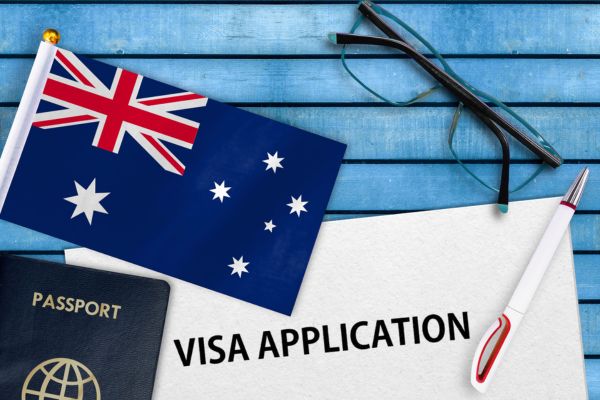Top Tips for Moving to Australia from the UK with Family

by Hayley
Planning a family move to Australia from the UK is an exciting but complex process, and getting it right means preparing well in advance. From sorting out visas to finding the right schools and housing, there are many important steps to ensure a smooth transition for your family. This guide will walk you through everything you need to know for a successful move Down Under.
One key to a smoother move is involving your children in the process, helping them feel excited about the new adventure while addressing any concerns they might have. We’ll also cover essential tips like selecting the right visa for your family and ensuring all the required documentation is in order.
With proper planning, financial organisation, and a proactive approach to embracing Australia’s culture and community, you can create a positive and rewarding experience for the whole family. Let us help you navigate this major life change with our expert advice, making the move seamless. As always, If you require a removal service to Australia and want to move your and your family’s belongings, you can contact us today to get started.
1. Moving to Australia with children
Introducing the idea of moving to Australia to your children can be delicate. Involving them in the process early on can make the transition smoother.
Begin with an open conversation about the move, emphasising the exciting aspects of living in a new country.
Explain the reasons behind the move in terms they can understand and relate to, which can reduce any apprehensions about leaving their current home.
Generate excitement by engaging your children in learning about Australia. Show them pictures, videos, and books about the country, and discuss its unique wildlife, beautiful beaches, and various activities they can look forward to.
Involve them in planning the move, such as packing their favourite toys or choosing their new room, to help them feel more in control and positive about the change.
Calming nerves and worries is crucial. Children may feel anxious about leaving friends and familiar surroundings. Reassure them by discussing how they can stay in touch through video calls and visits.
Encourage them to express their feelings and address their concerns with empathy. Fostering excitement about making new friends and experiencing new adventures can help alleviate their fears.
In summary, involve your children in the moving process, generate excitement about new experiences, and address their worries with empathy to make the transition to Australia positive. A supportive and understanding approach can help your kids adapt to their new life.
2. Choosing the Right Visa for Your Family
Choosing the appropriate visa is crucial in the immigration process.
Families moving to Australia can consider several family visas, including the partner visa, child visa, parent visa, and remaining relative visa.
Each type has its own eligibility criteria and benefits, such as the ability to work, study, and access healthcare.
Understanding these options and selecting the right family visa for Australia can significantly impact your migration experience.
Thoroughly research visa requirements to ensure you meet all necessary conditions before applying. Gather all required documentation and consider securing employment in Australia to strengthen your visa application.
Consulting with immigration experts or solicitors can help navigate the complexities of the visa application process.
Partner Visa
The partner visa is for those married to an Australian citizen or permanent resident and individuals in a long-term relationship with an eligible Australian or New Zealand citizen. Applicants must demonstrate the genuineness of their relationship through evidence such as photos, joint bank account statements, and declarations from family and friends. This visa grants permanent residency and is a pathway to Australian citizenship for eligible New Zealand citizens after meeting residency requirements, including the option to apply for a permanent visa.
The application process for a partner visa involves two stages: an initial submission of a joint application, followed by additional assessments and further evidence if required by the Department of Home Affairs. This complex and time-consuming process often requires several months to complete, so thorough and accurate documentation is crucial to avoid delays.
The Department of Home Affairs may request additional information or evidence during the application process, such as police clearance certificates and health checks, to ensure you meet health and character requirements.
Successfully obtaining a partner visa allows you to live and work in Australia with your partner, providing stability and security for your family.
Child Visa
The child visa is essential for ensuring your kids can join you in Australia. There are two main types: the Offshore (101) and Onshore (102) visas. Both require the child to be single and sponsored by their parents, allowing dependent children to reside permanently in Australia, study, and eventually apply for Australian citizenship.
A child visa application requires submitting various documents, such as birth certificates, adoption papers, court orders, and evidence of financial support. Seeking assistance from an immigration solicitor is highly recommended to improve the chances of success, ensure accurate submission of necessary documentation, and address potential issues promptly.
Once granted, the child visa provides a pathway for children to integrate into Australian society, benefit from the education system, and enjoy the same rights and privileges as other Australian citizens. This visa plays a vital role in reuniting families and helping children thrive in their new environment.
Parent Visa
Parent visas cater to parents of Australian citizens or permanent residents wishing to join their children in Australia, while the aged dependent relative visa provides an option for older relatives to join their family members. There are contributory and non-contributory parent visas, with differing processing times and costs. Contributory visas generally have shorter processing times but higher application fees, while non-contributory visas are more affordable but can take many years to process.
Understanding the financial and time commitments involved is important when applying for a parent visa. These visas allow parents to live permanently in Australia, providing the opportunity to be close to their family and enjoy the benefits of Australian residency.
Carefully consider the options and choose the visa type that best suits your family’s needs and circumstances.
3. Preparing for Your Move
Preparing for a move to Australia involves financial planning, organising documentation, and managing logistics. Moving overseas can be costly, especially for families, so budget for initial expenses like visa fees, moving costs, and accommodation. Researching the local property market, transportation, schools, and amenities can help you make informed decisions about your new life.
Engaging with Australian government agencies and understanding the processes involved in accessing services is critical. From obtaining a Tax File Number (TFN) to enrolling in Medicare, navigating Australian bureaucracy requires careful attention to detail. Being well-prepared and informed can significantly ease your transition and help you settle into your new home smoothly.
Financial Planning
Effective financial planning is crucial for a successful move to Australia. Consider all potential costs, including visa application fees, moving expenses, property prices, and day-to-day living costs. Understand tax liabilities in both Australia and the UK, especially if you have savings or investments. Resources like Numbeo can provide valuable insights into the cost of living in various Australian cities.
Private health insurance is advisable for quicker access to certain medical treatments in Australia. It can also help manage healthcare costs and provide peace of mind for your family. Proper financial planning will enable you to allocate enough money for all necessary expenses and ensure a smooth transition.
Documentation and Legal Requirements
Gathering the necessary documentation is vital. This includes obtaining a police clearance certificate from the UK to meet the character requirements for your visa application. Having all required documents, such as birth certificates, marriage certificates, and health records, will streamline the visa application process and help you meet Australian government requirements.
Logistics and Packing
Evaluate your belongings and decide what to take with you. Consider selling or donating non-essential items to avoid unnecessary shipping costs. Request quotes from multiple firms when selecting an international removal company to get the best deal. Verify the inclusion of protection in your moving contract to safeguard against loss, theft, or damage during transit.
Purchasing new items in Australia instead of moving large furniture can be more cost-effective. Ensure your international removal firm provides guidance on customs fees and complies with all necessary regulations when relocating to Australia.
Proper planning and organisation in logistics and packing can make your move seamless and stress-free.
4. Settling in Australia
Settling in Australia involves adjusting to a new environment and establishing a routine.
Families may face challenges like managing young children and navigating a lack of a support network.
Establishing a routine can provide stability and ease the transition. Understanding local customs and values, such as egalitarianism and mateship, is crucial for smoother integration into Australian society.
Appreciating Australia’s multiculturalism and embracing the diversity of its communities is important. Engaging in local activities and being open to new experiences can significantly enhance your family’s adaptation. Building a support network through community events and social interactions can provide much-needed support and connection in your new home.
Finding a Home
Finding a home in Australia requires understanding the local property market. Researching different suburbs and housing options can help you find a location that matches your lifestyle and budget. Engaging with local real estate agents and familiarising yourself with housing policies will help you navigate the property market more effectively.
Whether you choose to rent or buy, understanding the market will facilitate a smoother transition into your new home.
Enrolling Children in School
Enrolling children in school is a significant step in settling down. Australia’s diverse education system includes public, private, and independent schools. To enrol your children, provide proof of identity, address, and relevant immunisation records. Birth certificates and previous school documentation may also be required. Check the specific requirements for the state or territory you are moving to, as these can vary.
Contacting local schools and submitting the necessary documentation early can ensure a smooth enrollment process. Understanding the education system and preparing for enrollment requirements will help your children integrate into their new school environment and continue their education seamlessly.
Building a Support Network
Building a support network is vital for a successful transition. Making friends through school and expat networks can provide a sense of belonging and support. Participating in community events and joining local clubs or groups can help you meet new people and establish connections. Australians enjoy a lifestyle that includes outdoor activities, which can be a great way to socialise and integrate into the community.
Being open and willing to see friendship opportunities is crucial for making friends in a new place. Accepting offers of help or invitations for coffee can lead to new friendships and local insights.
Building a support network will make you feel stronger and more supported, helping your family settle into your new life in Australia.
5. Navigating Australian Bureaucracy
Navigating Australian bureaucracy is essential for new residents to manage their move and settlement effectively. From obtaining a Tax File Number (TFN) to understanding work rights and residency obligations, being informed about the various processes is crucial. Different states in Australia may have varying regulations, so it’s important to be aware of local requirements and comply with them.
Understanding the key aspects of Australian bureaucracy, such as tax management and accessing healthcare services, will help you settle in smoothly. Engaging with the Australian government and its agencies and ensuring that you meet all necessary conditions will facilitate a hassle-free transition to your new life in Australia.
Registering with Local Authorities
Registering with local authorities is crucial for accessing various services and establishing your residency. Obtaining a Tax File Number (TFN) is essential for tax purposes and is required when working or earning income in Australia. Additionally, enrolling in Medicare is vital for accessing healthcare services, and new residents should register as soon as possible.
Completing these registrations promptly will ensure that you have access to essential services and can navigate your new environment more efficiently.
Setting Up Utilities and Services
Setting up utilities and services is an important step in settling into your new home. It’s advisable to begin arranging utility services at least a month before moving to ensure a smooth transition. To set up utilities like electricity and gas, you typically need to provide identification and proof of residence. Utilising the myGovID app can streamline the process of accessing various Australian government services, including applying for a TFN.
Before your move is finalised, make sure you have completed all necessary applications and registrations for utilities and government services. Setting up utilities and services will help you settle into your new home comfortably and without unnecessary delays.
Understanding Local Laws
Understanding local laws is essential for a smooth transition to life in Australia. Familiarity with driving regulations, work rights, and residency obligations is crucial for compliance and safety. Residents must comply with local laws, and failure to do so can result in penalties and fines.
Being well-informed about the legal landscape will help you avoid any legal issues and ensure a hassle-free living experience in your new country.
6. Cost of Living in Australia
The cost of living in Australia is generally higher than in the UK, although higher salaries can offset these expenses.
Major expense categories include housing, transportation, and food. It’s essential to budget for these costs and plan accordingly to ensure financial stability.
Significant upfront costs are required for moving to Australia, especially when travelling with a family. Understanding the cost of living will help you manage your finances effectively and avoid any financial surprises.
Comparing living expenses between Australia and the UK can provide valuable insights into what to expect. Factors like housing costs, food prices, and healthcare expenses can vary significantly, so it’s essential to research and prepare for these differences. Proper financial planning and budgeting will enable you to enjoy a comfortable lifestyle in your new home.
Housing Costs
Housing costs are a significant consideration for families moving to Australia. Home purchase prices have steadily risen, influenced by demand and limited supply. This can make finding affordable housing challenging, especially in major cities.
Researching the property market and understanding the factors affecting housing costs will help you make informed decisions about where to live and how to budget for housing expenses.
Food and Grocery Prices
In many areas, food prices in Australia can be higher than in the UK. Planning meals and shopping with lists can help you avoid impulse purchases and manage your budget effectively. Shopping at local markets can also help save on food expenses and provide fresher options. Understanding food prices and shopping wisely can greatly benefit your family’s budget after relocating to Australia.
Managing food expenses involves being mindful of where and how you shop. Comparing prices at different stores, taking advantage of sales, and buying in bulk can help you save money. By planning your meals and shopping strategically, you can ensure that your family enjoys a healthy diet without overspending.
Healthcare Expenses
Healthcare costs in Australia can be significant, especially for families. Understanding these costs is crucial for financial planning. For families under temporary visa classes, there may be a financial contribution required towards children’s educational costs until permanent residency is obtained.
Private health insurance can help offset some out-of-pocket expenses, providing varying coverage levels. Properly planning for healthcare expenses will ensure that your family has access to necessary medical services without financial stress.
7. Moving Pets to Australia
Moving pets to Australia involves adhering to strict quarantine regulations.
Pets entering Australia are required to undergo a quarantine period of 10 to 30 days, depending on their health status and country of origin.
This quarantine is conducted at a government facility near Melbourne. Ensuring that your pets meet all veterinary protocols and originate from an approved country is essential for a smooth transition.
As of March 1, 2023, new measures regulate the importation of cats and dogs into Australia. It’s important to familiarise yourself with these regulations and prepare accordingly. Proper planning and adherence to quarantine requirements will ensure your pets can join you in Australia without any issues.
Preparing Your Pet
Preparing your pet for the move involves several steps. Ensure that your pet is vaccinated against rabies and other diseases commonly recognised by Australia’s Department of Agriculture. A health check is crucial to ensure compliance with quarantine regulations. Booking travel for your pet well in advance and choosing a pet-friendly airline experienced with international travel will facilitate a smooth transition.
Make sure your pet’s travel carrier meets the International Air Transport Association (IATA) requirements for air travel. Proper preparation and adherence to regulations will ensure that your pet’s move to Australia is safe and stress-free.
8. Cultural Adjustments
Adjusting to a new culture is a significant part of moving to Australia. Australians are known for their straightforwardness and value open expression of opinions. Understanding and adapting to social norms, such as direct communication and the use of humour in conversations, is crucial for building relationships in Australia. Embracing lifestyle differences and engaging with new cultural practices will enhance your experience and help you integrate more smoothly.
Respecting local customs and values, such as egalitarianism and mateship, is essential for smoother integration into Australian society. Engaging in local activities and being open to new experiences can significantly enhance your family’s adaptation to the new environment.
Embracing the Climate
The climate in Australia is quite different from the UK. Moving from a British winter to an Australian summer can be a significant change, with average summer temperatures around 30°C. Embracing the warmer climate can enhance outdoor family activities and lifestyle.
Helping children adapt to the new climate by gradually adjusting to the temperature changes can make the transition smoother.
Understanding Social Norms
Understanding social norms is crucial for integrating into Australian society. Australians typically engage in friendly and informal conversations, often using first names, even with people they have just met. Common etiquette includes being punctual, making eye contact during conversations, and not interrupting others when they speak. Humour plays a significant role in communication, and it’s common to make light-hearted jokes, even in serious discussions.
It is also important to help children adapt to new cultural norms. Encourage them to participate in social activities and make new friends. Understanding and respecting the local customs will help them feel more comfortable and accepted in their new environment.
Engaging in Local Activities
Engaging in local activities is a great way to integrate into the community. Participating in local sports teams is popular and can help newcomers meet people and build connections. Sports play a significant role in Australian culture, serving as a popular means of socialising. Encouraging children to join local sports events and clubs can help them make friends and feel more connected to their new community.
Attending community festivals and events can provide insights into Australian culture and foster connections with locals. Engaging in these activities not only offers a chance to have fun but also helps create a sense of belonging and community. Embracing local activities will enhance your family’s experience and help you settle into your new life in Australia.
Shipping your belongings to Australia
Shipping your belongings to Australia is a significant part of the moving process. Finding a good international removals company, like Simpsons International Removals, can make the process smoother. The estimated duration for complete container removals from the UK to Australia is 6 to 8 weeks, while part load removals generally require about 8 to 12 weeks for delivery. It’s important to choose the right removal option that fits your budget and needs.
Navigating customs clearance is crucial for successfully shipping goods to Australia. Ensure that your overseas removal firm provides guidance on customs fees and complies with all necessary regulations.
Proper planning and organisation when shipping your belongings will make you feel at home in your new environment and ensure a smooth removal service to Australia.
Ready to take the next step? Get an online quote today or visit our furniture shipping to Australia guide to learn how we can support you in making this exciting move a success.
Recommended Posts

The Best Places to Live in Australia for Expats in 2025
Tuesday, 4th March 2025

The Best Australian Road Trips for Adventure Seekers
Thursday, 6th February 2025

Understanding Australian Culture When You Move from the UK: A Practical Guide
Thursday, 12th September 2024







